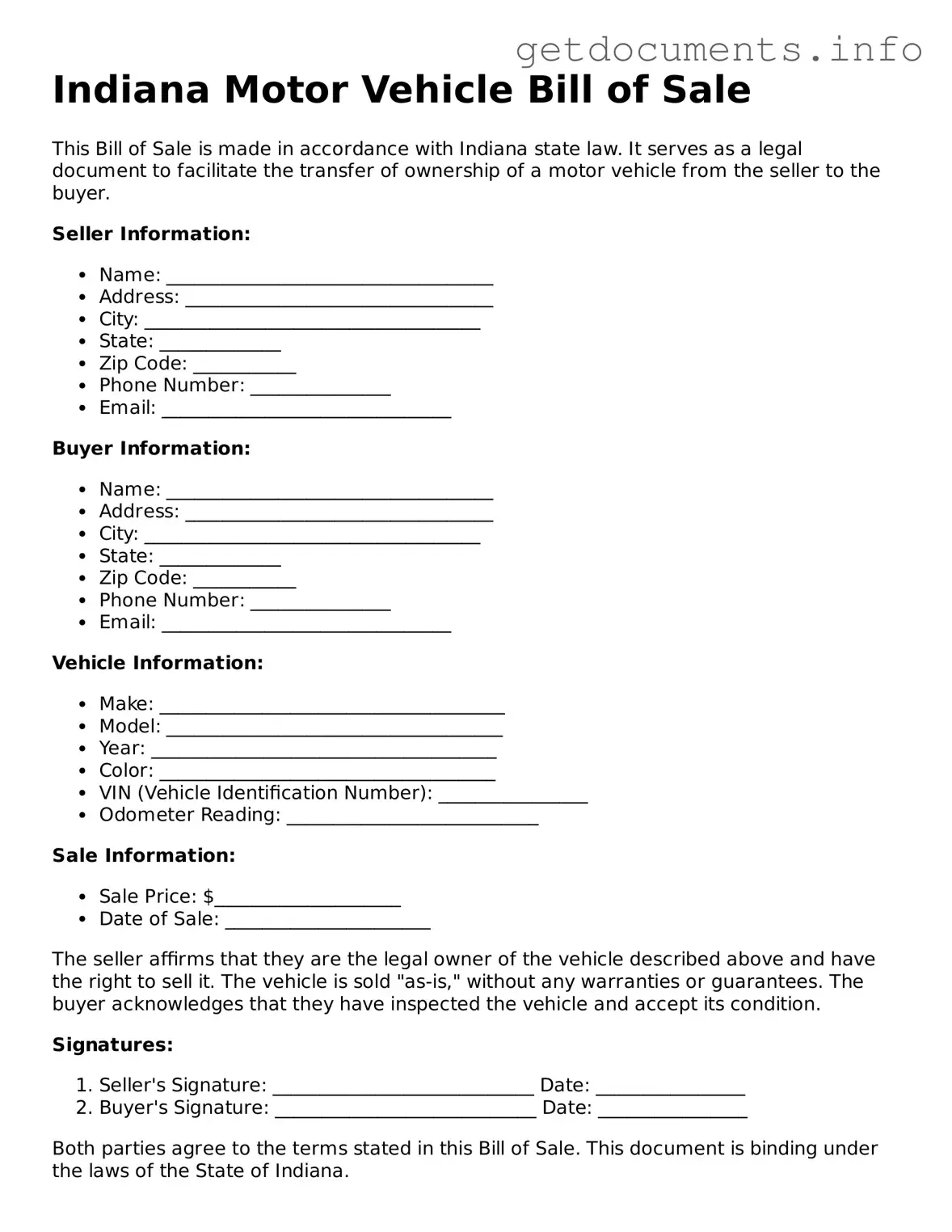Free Motor Vehicle Bill of Sale Template for Indiana
The Indiana Motor Vehicle Bill of Sale form is a legal document that records the transfer of ownership of a vehicle from one party to another. This form provides essential details about the vehicle and the transaction, ensuring both the buyer and seller have a clear record of the sale. To get started on your vehicle sale, fill out the form by clicking the button below.
Access Motor Vehicle Bill of Sale Editor

Free Motor Vehicle Bill of Sale Template for Indiana
Access Motor Vehicle Bill of Sale Editor
Got places to be? Complete the form fast
Fill out Motor Vehicle Bill of Sale online and avoid printing or scanning.
Access Motor Vehicle Bill of Sale Editor
or
⇩ PDF File
